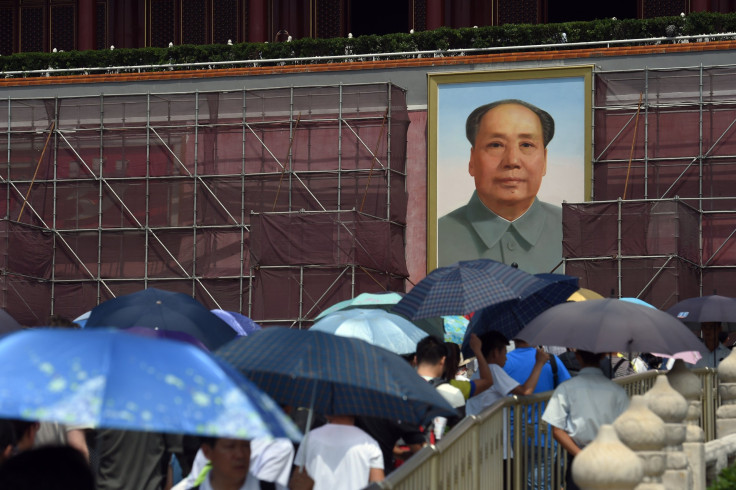China Communist Party Membership: NGOs, Trade Unions Targeted To Boost Number Of Members

In an effort to guide people “in the right political direction,” China’s Communist Party has called for an increased number of party members in nongovernmental organizations (NGOs), foundations and trade unions, Chinese state media reported Monday. The government’s call comes at a moment of global economic uncertainty surrounding China.
With party members present in more organizations, they would be able to “mobilize and educate ordinary people to stand against negative influence and illegal activities,” according to the Communist Party’s Central Committee Organization Department, which added that more members would help carry out party policies, the South China Morning Post reported.
Any foundations, trade unions or NGOs with more than three party members should establish a party branch, and local neighborhoods should also do so, according to a statement from the Committee Organization Department. Any organizations that lacks three or more members should work on recruiting more. The Party’s directive comes with a financial incentive: Organizations that follow party instructions would get financial assistance and tax subsidies.
The proposal has already received pushback from local groups that are not interested in injecting government politics into their organizations.
#China ’s #CCP membership reaches nearly 88 million, more than the population of #Germany http://t.co/5CS5yRzVmo pic.twitter.com/dDGI1pa6oT
— Winnie King (@DrWinnieKing) June 30, 2015
“We are a social service organization: such an initiative is against our very nature, since the basic principle of NGOs is that it should be nonreligious, [not profitable] and nonpolitical,” said Zeng Feiyang, director of the Guangdong Panyu Migrant Worker Center, speaking with the South China Morning Post. Feiyang went on to say that independence was extremely important to the group.
It was unclear if and how the Party planned to verify whether or not its directive was being followed.
Global economic uncertainty over China’s economy has continued since last month when the Shanghai Composite Index's dramatic drop reverberated across world markets. Investment bank Goldman Sachs lowered its forecast Tuesday for the S&P 500 over concerns of China’s economic slowdown. China has tried to crackdown on illegal banking practices with underground banks that funnel billions of dollars out of the country each year.
© Copyright IBTimes 2024. All rights reserved.






















